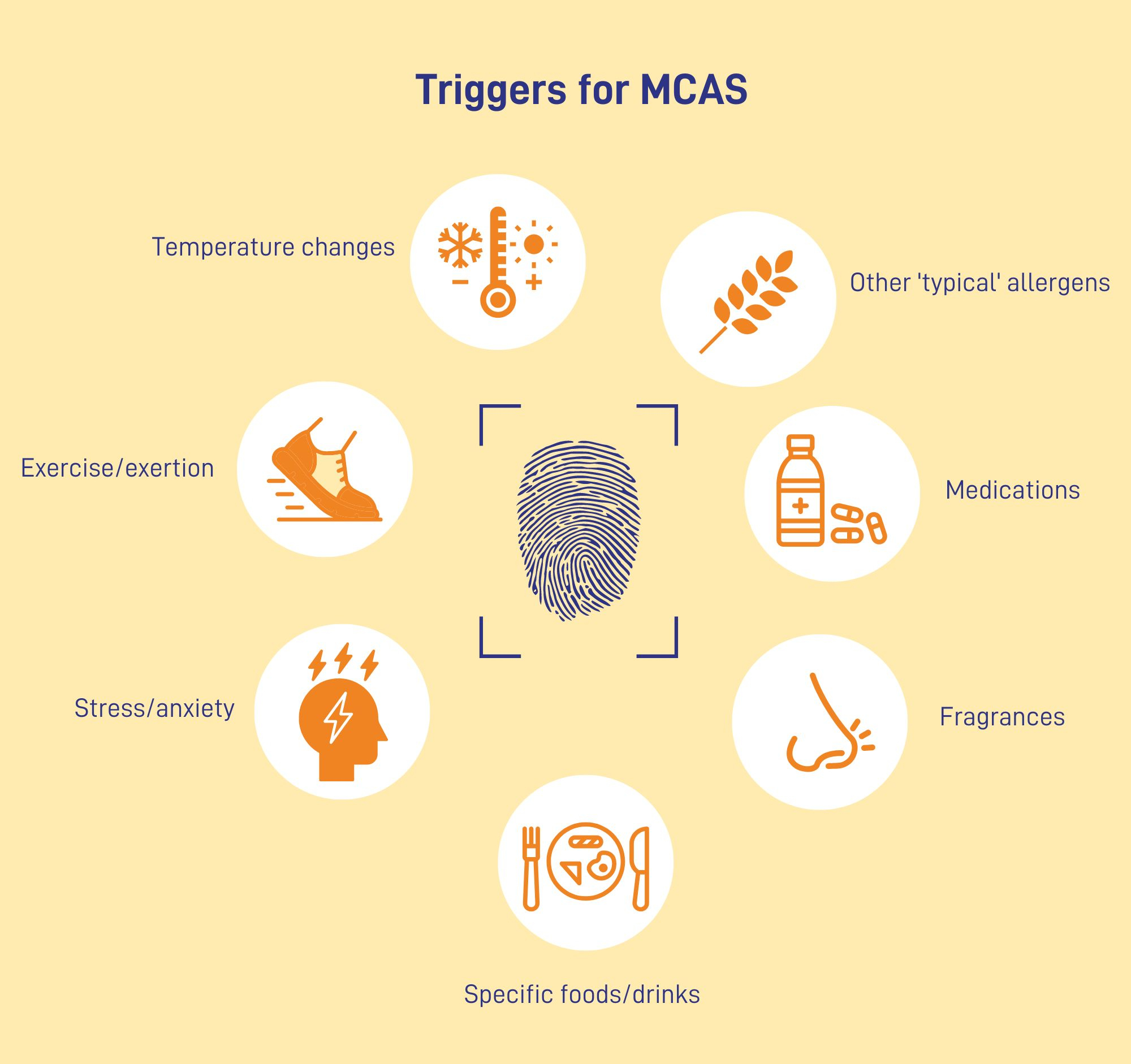

Identifying triggers
Living with MCAS can feel unpredictable. One of the most important – and sometimes most challenging – steps in managing the condition is learning to identify your personal triggers.
Because MCAS symptoms can vary so widely from person to person, what causes a reaction for one individual may not affect another at all.
There’s no one-size-fits-all list, but understanding your own patterns can help you take back a sense of control.
While there are some common triggers, most people affected by MCAS struggle to identify all the triggers responsible for their symptoms. And each individual has a unique set of triggers that cause their mast cells to overreact.

While avoiding or reducing exposure to triggers can improve symptoms, most people with MCAS will experience multiple triggers. This can make it difficult to work out what is causing a reaction.
Identifying individual triggers is best done by keeping a diary which includes foods, exposure to chemicals and fragrances, stress, change in temperature and exercise.
This helps us to identify any patterns or common themes which can help us to understand more about what is triggering our reactions.
It is important to remember that food and environmental triggers can change over time and that no single approach works for everyone.
Restarting the diary if problems arise in the future could help to identify new or changing triggers.

Be gentle with yourself
Identifying triggers takes time and patience. Sometimes, a reaction seems to happen “out of the blue,” or you may not be able to pinpoint a cause at all. That’s normal with MCAS. Try not to blame yourself if you get it wrong – this is a process of learning, not perfection.
You don’t have to figure it all out alone. Our resources, downloadable tracking tools, and peer support groups are here to help.
Share your triggers and symptoms with friends and family so they can help with management and reducing exposure to triggers.
You can download our PDF about triggers here. We hope this will help you to talk to others about the triggers you are trying to avoid.
Become a friend
Sign up to become a Friend of Mast Cell Action so we can keep you up to date on our progress and on how to get involved in our latest campaigns and initiatives.
Donate
Mast Cell Action relies entirely on the generosity of people like you. Please make a donation now and together we can make a difference to those affected by MCAS.







